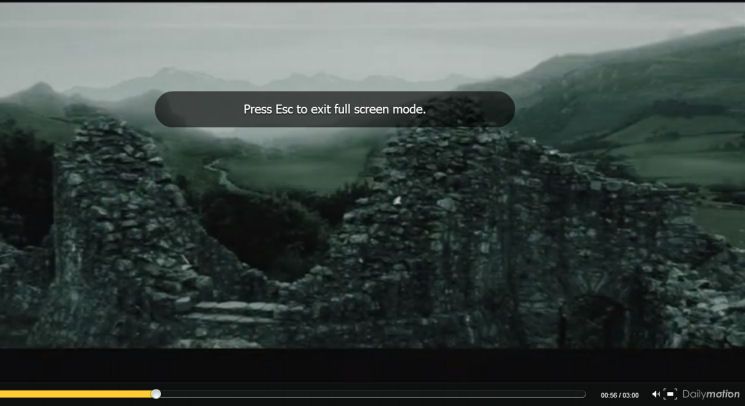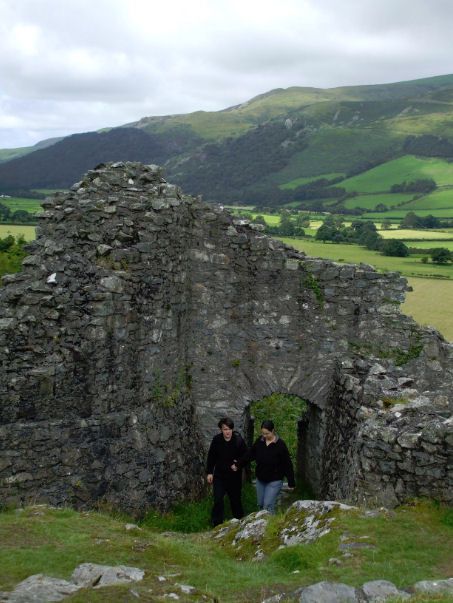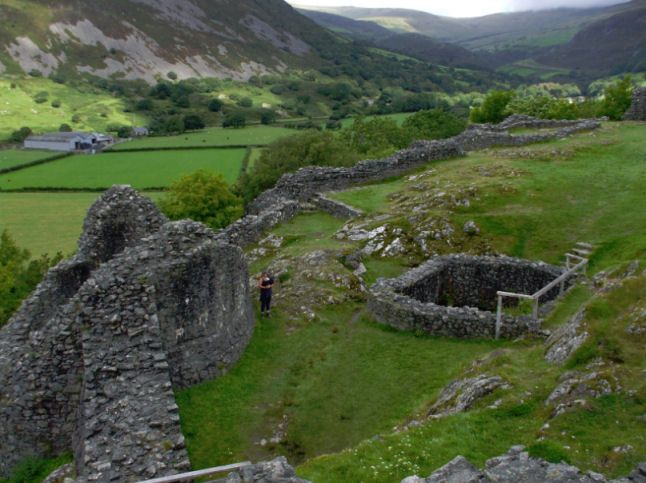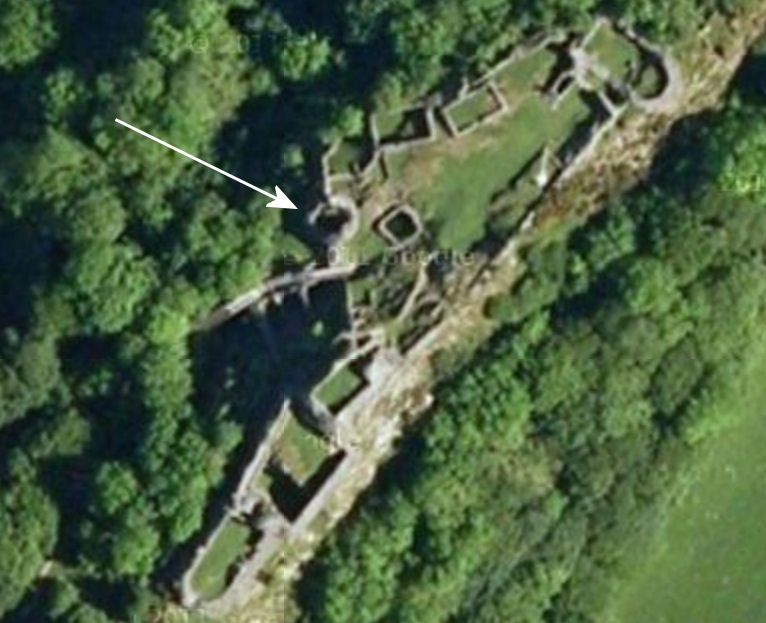This thread was conceived for those of us who have been here since the PPC was essentially a Lord of the Rings fanwriting community with a really big twist - but is of course open to everyone. ;) It'd be great to see some of the newer faces talking about the good old things.
So in the past few days The Hobbit Part 1 has come out on DVD, and I figure this is a good time to talk about the entire series of Middle-earth films, what we think of them, and where we hope they'll go - not to mention how we
feel about them, which is a somewhat separate issue. Also, it's awesome to engage in nostalgia on occasion (and that includes anyone just seeing the films now - you can be nostalgic about new stuff, right?).
It's weird to think that it's been nearly
twelve years since
Fellowship of the Ring came out, and we were all introduced to Huge-Eyed Frodo and His Blond Friend Leggy (Also Some Other Blokes). Prior to that,
Lord of the Rings visuals consisted of:
-The Bakshi film and its Rankin-Bass sequel, which were... not masterpieces of the cinematic art.
-A bunch of paintings by various artists, some of which included Boromir in a horned helmet.
-Tolkien's pictures of trees.
And suddenly we were hit with this frankly incredibly cinematic assault.
And yes, it was pretty awesome. There were things we all complained about in FotR - notably the absence of Tom Bombadil and the inexplicable presence of Arwen - but for the most part? It was a bloomin' good film, and the fandom was wild about it. I know I was. It was
pretty, too, and it felt like Middle-earth. I mean, yes, it was a shame about some of the lines they cut (at one point I was sorely tempted to write my own 'Return of the Shadow' script solely to get "By Elbereth and Luthien the Fair, you shall have neither the Ring nor me!" onto the imaginary screen), but it was a good film.
Then came
The Two Towers. I may be wrong, but I think this was the film that provoked the most fury amongst fans. Treebeard says no? Faramir tries to take the Hobbits to Minas Tirith?
Faramir did what?!?I still get angry about that. I mean, really - it was stupid. I don't understand why they did it, since it's not like the story lacks in tension. And then the Battle of the Hornburg (in the very apt words of Philosopher at Large) 'ate the film'... yeah.
But was it still pretty? Did it still feel like Middle-earth? In a lot of ways, yes. But... y'know, Movie!Ithilien never felt like the decaying garden it should have been, and Movie!Rohan felt a lot more gritty-dark, a lot less noble than it should have been.
With expectations balanced partway between 'soaring' and 'suitably lowered', we went into
Return of the King, which... I'm still not sure how I feel about. FotR I loved, TTT I'm upset over, but RotK... well. It gave us Flaming Denethor, Gothmog the Hideous, Searchlight Sauron, The Little Green Dead Men of Dunharrow, and a complete lack of the Scouring of the Shire, also known as 'the moral of the whole story'. But it also gave us the Ride of the Rohirrim, Sam storming the Tower of Cirith Ungol, Black Sails Before Gondor, The Eagles Are Coming, and the Grey Ships. For all the wrong reasons, it was an emotional ride.
And then... well, there were the Extended Editions, with their own weird flaws (no, Sam does not get given rope as a present!
Stop making Gimli look stupid!), and then it was over. Done. No more trilogy.
Now comes the bit I know nothing about: the two fan-films. I saw the trailer for
The Hunt for Gollum when it first appeared, and squealed because I actually recognise the castle they use in there somewhere - I used to play hide-and-seek in the ruins when I was younger (and heck, who says I've stopped? Roll on summer!).
Born of Hope I only found out about very recently. But... I've not actually watched either of them. Has anyone? Are they any good? Please tell me they're any good...
And then we had a decade of ups and downs as various people claimed they were making
The Hobbit, that they weren't making
The Hobbit, that the Estate had forbidden anyone from ever making
The Hobbit, that it would be two films, that it would be three films... and then, quite suddenly, we discovered that
The Hobbit: An Unexpected Journey was coming out in late 2012.
And it actually did, too. ;)
Unexpected Journey was not, I have to admit, up to the standards of FotR. It was about as pretty - with the notable exceptions of Azog the Ugly and Goblin-King the Wobbly (ugh, who thought that was a good idea?), and possibly Radagast the Mucky - but it diverged from the plot for dubious reasons. Azog's alive? There's a gigantic battle in Goblin Town? Stone giants try to kill them? And the list don't half go on.
But... it was awesome to see the Shire again, to see Elrond again (to see Imladris at war!), to see the Eagles again. The characters (or at least the ones you learnt to tell apart) were brilliant, especially Bilbo, Gandalf, Thorin and Kili (aka 'The ones they bothered most with'). The end credits song was fantastic ;). And, unlike TTT, it didn't actually break anyone's motives ("A chance for Faramir, Captain of Gondor, to show his quality... of kidnapping and evil!" Grr).
I also like - love - the fact that they're working in more of the backstory. Some of it seems to be hideously broken (Ding, dong, the Witch-King's dead...), but a lot of it worked really well. And it's always brilliant to see Galadriel again. And Saruman, for that matter, even if he did get a bit ranty.
And there's two more films to go. What I've seen suggests that
Desolation of Smaug will finish with Smaug's death, which implies
There and Back Again will cover the Battle of the Five Armies and Bilbo's journey home. Thinking about how that breaks the plot down, I strongly suspect the Necromancer will remain a going concern into TaBA, since otherwise DoS would need to cover Mirkwood, barrels, finding the door, irritating Smaug, Bard killing Smaug,
and the entire Sauron plot. So I'm guessing we'll see the driving-out of the Necromancer interleaved with the leadup to the B5A, and then have a reasonably calm ending as Bilbo goes home.
All in all? I'm excited. Despite disappointments at times (and he's supposed to be an example of
what Boromir isn't - why should we like Faramir more than Boromir if they both succumb to the Ring? Especially since Faramir took way less time to do so...) I've been a fan of the series since it started. Here's hoping they can end it on a high note.
And
then will be the time for the eight-movie marathon... anyone up for it? ;P
hS



